Is Science Just Another Religion?: 21st Century Dogma, Faith in Science and the Cult of Objectivity
To encourage us to reconsider everything we believe about 'science'.
First, before things get intense; we're going to clarify what I mean by 'science'.
- My use of the word 'science' has two definitions:
- Science(n) as a noun: i.e. the institutions of science, scientific body of knowledge, scientists as an organization, and people who identify with science or believe in science - or, in other worlds the whole organizational body of science today.
- Science(v) as a verb: i.e. the action of "conducting science" with the scientific method, typically by someone with 'scientific' training.
Premises:
- Science(nv) is not analogous with human creativity, nor does attempting to understand our world make one a scientist (as most scientists would attest).
- Developing technology does not automatically make one a scientist.
- Science(nv) does not own a monopoly on critical thought.
- Science(nv) and ignorance is a false dichotomy (mainly proposed by Science(n)).
- Our culture's methods of understanding 'science' has created some amazing technology, but it is not the only technology of deeper understanding.
If you disagree with any premise mentioned we're going to have difficulty relating and creating a meaningful dialog. Please, articulate where you divert before commenting or critiquing :)
What Is Science?
(From searching 'what is science' first result from UC Berkeley.)
I am a strong believer in the basic ideology of science(v): the ideals of humility paired with the creative and wonderful impulse to explore and understand! An intellectual non-attachment that would serve any system of belief wonderfully. Science(v) becomes science(n) when non-attachment becomes fervent attachment, a cornerstone of most religious dogma.
My main critiques are on the institute of science (n) as just another religion (with it's fraud, hierarchy and dogma), while discussing some limitations of science (v) as a method for seeking "truth".
The Problems Begin with Facts
As we saw in the definition of science above. Science(n) routinely lacks humility when it comes to expressing what it believes to be facts about the universe. Just like any religious system, it purports to be the 'one true religion' in understanding the patterns of our natural world; while all other religions or methods of understanding are invalid. (I'm not suggesting there aren't individuals in the scientific community who don't think this way, I'm discussing a systemic issue.)
Facts
Science(nv), has been helpful in determining constants and patterns that help us better understand our 'objective universe.' Take the 'universal constant' (It's the 'C' in E=MC^2) It's one thing in our universe we know to be constant, hence why we called it a constant. Except, when it's not:
A quick search brought this:
Ten famous theories that were disproved.
Superseded scientific theories.
I could go on, but you get the idea...
False Science(v) in Science(n)
Science(n) not only overstates it's ability to completely understand the world, it also littered with blatant fraud a false science(v):
Well kids, this is meant to encourage you! If Marge Simpson can be a published scientist(n); then so can you!
Here we can see how we would have just as high a probability of distilling truth from ancient religious doctrine as we would reading scientific(n) journals.
But, What About Our Technology, Surely That's Proof of Our God's Power (I Mean Science)
Or, it's proof of a highly developed understanding of but a single aspect of our material world.
"We cite our power over exactly those aspects of the material world as proof of the validity of our science. The logic is circular. Another culture might have a highly developed technology of aspects of the world that we do not even recognize, or that we consider unimportant. An Australian aborigine might consider us hopelessly primitive in our understanding and use of dreams; a traditional Chinese doctor might find us laughably ignorant of the energetics of plants and the human body. . . Yet it is not hard to imagine other cultures that would dismiss our power over the physical environment as inconsequential, an unimportant aspect of life, or that would even deny that our power is really so great. Do we not eat, sleep, pass waste, make love, grow old, grow sick, and die as all other human beings? Do we not experience the same gamut of emotions as human beings everywhere and everywhen?" - Charles Eisenstein *The Ascent of Humanity
However, science(n) would casually dismiss either of these as unimportant aspects of life as they do not fit into the prescribed world-view. Sure, we have a great science. But so what?! Tell me, has it really improved our quality of life?
"We devise astounding means of communication, but do we communicate with one another? We move our bodies to and fro at incredible speeds, but do we really leave the spot we started from? Mentally, morally, spiritually, we are fettered. What have we achieved in mowing down mountain ranges, harnessing the energy of mighty rivers, or moving whole populations about like chess pieces, if we ourselves remain the same restless, miserable, frustrated creatures we were before? To call such activity progress is utter delusion. We may succeed in altering the face of the earth until it is unrecognizable even to the Creator, but if we are unaffected wherein lies the meaning?" - Henry Miller
Science(n) As Religion
Religion once offered the majority of people answers to all our deepest questions (today with religious affiliation at an all time low. (Or, is it just as high; if people have religiously/dogmatically converted to science(n)?) Now, science offers prescriptions on how to live life and how to organize society. It tells us how to understand the world and how to pursue knowledge; it tells us who we are, how we came to be, and where we are going. Speaking of another culture, we might describe these prescriptions and these stories about the way of the world as a religion. For ourselves, we call them truth, fact, science(n)-fundamentally different from other cultures' myths. Why? Why have we let our precious science(v) come to this?
Just as religion has a history of rejecting the most spiritual among them if they counter the status quo. Science(n) has a reputation of creating heretics of it's most fervent, and actually scientific(v) members if they attempt the same.
Maverick scientists who disrupted the status quo who were pariahs to the scientific community for years before vindication:
Why is Science(n) Failing Science(v)
"Science and indeed reason itself are based on the discovery of regularities in nature. The possibility that we are not observing but rather creating these regularities through our beliefs presents a profound challenge to the very validity of science as we know it, implying that we are merely observing our own reflection. Beyond these two opposed possibilities lies a third, dialectic, possibility of mutual co-creation of belief and reality that affirms the fundamental non-separation of subject and object. The deep presumption underlying the Scientific Method and the whole edifice of scientific reason is that there is a reality "out there", independent of me, waiting to be discovered. It is the exact counterpart of our foundational cultural assumption of the separate self in a world of discrete others. It is yet another flavor of the basic dualism of subject and object." - Charles Eisenstein The Ascent of Humanity
Well, simply because most of science(n) is still attempting the impossible, to prove objectivity. When science's(v) "criticism proves that nonobjectivity must be considered an epistemological choice rather than an unavoidable feature of Quantum Mechanics" and navigate within the confines of the status quo.
Maintaining The Status Quo
Just as it was religion's role to support the monarchy and grant unquestionable authority to the kings and queens of old, science(N) actively works to maintain the status quo. In Disciplined Minds by physicist Jeff Schmidt "He shows that professional work is inherently political, and that professionals are hired to subordinate their own vision and maintain strict 'ideological discipline.' Schmidt details the battle one must fight to be an independent thinker and to pursue one's own social vision in today's corporate society." He outlines the systemic ideologies (dogma) scientists (and anyone seeking the realms of graduate/post graduate education) must succumb to in order to be granted access into the priesthood of science.
"Schmidt was fired from his position of 19 years as Associate Editor at Physics Today for writing the book..." (Later to be reinstated after a popular outcry)
Follow The Money

(Or is it money that has been the 'one true god')
Religious priests used to accept payment in advance to for one to be forgiven of future sins.
Science(n) confines it's practitioners not only through 'disciplining their minds' but also through restricting freedom. Most scientists will leave school with an insurmountable amount of debt. It's not exactly an open invitation to start researching paradigm shifting topics. Scientific funding is overwhelmingly available if it is going to be profitable for the highly corrupt sectors of the U.S. military and U.S. medical centers (commonly referred to the military industrial complex and medical industrial complex respectively). Together they directly receive 77%+ of U.S. government scientific funding..
Meaning, if it isn't going to be in the best interests of either of these parties as a scientist you are not reduced to a mere 23% chance of finding funding. Worse yet, government funding has dropped to less than 50% of overall scientific funding, meaning corporations are supporting over 50% of basic research carried out.
"What's wrong with corporations supporting science?" -Someone's thoughts, once.
It is literally against the law for a publicly traded corporation to make a decision that isn't profitable to it's shareholders.
Therefore, it is entirely in the best interests of a corporation to fund only studies that support their agendas.
"Well, this is all well and good. But you can't blame science(v) for the faults of some corrupt, biased, inept, fraudulent, incapable scientists. The scientific theory is sound, it's scientist who are to blame" - Many a retort before
The Cult of Objectivity
I'm not suggesting that all scientists are a bunch of frauds and sellouts. Actually, I believe the exact opposite. I have found that as a general rule people who consider themselves 'scientists' tend to be very genuine caring thoughtful people, but the same can be said about my interactions with 'religious' people. I'm not critiquing the faults of individuals, I'm critiquing the limitations and failures of the institution of science(n) and it's methods and underlying beliefs as a whole. Such as the overwhelming scientific (n) belief in objectivity.
"Within the domain of quantum mechanics, knowledge of ‘reality in itself’, ‘the real such as it truly is’ independent of the way it is contextualized, is impossible in principle." (If you firmly believe in objectivity and the scientific method read this paper, it will likely blow your mind.)
So, we learned after reading the link (because you're a seeker of truth, so you studied the material yourself), the huge potential for objectivity to be a false assumption and that our universe is more likely a series of infinite probabilities, not facts! Yet:
"The scientific method is the best way yet discovered for winnowing the truth from lies and delusion." (cited from Physics.ucr.edu)
Faith In the Scientific(V) Method
"The Scientific Method by its very nature excludes whole classes of possible phenomena from ever being established. It is constitutionally incapable of apprehending phenomena that are not objective or deterministic." -Charles Eisenstein The Ascent of Humanity
The scientific method requires two fundamental truisms that we often don't question. Two aspects we faithfully accept that are unavailable in order for science(V) to 'winnow the truth from lies and delusion'.
Objectivity:
The belief that an experimenter has no effect on an experiment.
Determinism:
Faith that the same initial conditions will result in the same final conditions. Which, having the understanding that quantum mechanics has provided (above) is impossible to obtain given an experiment. Even with classical understanding a person is never in the same point in space and time to perform an experiment! So, it is impossible to replicate an experiment, and impossible to separate an experimenter from said experiment (that is all without considering the bias and fraud).
Disconnect Between Science(v) and Science(n)
How is it that our top scientists don't support objectivity or determinism and recognize the inherent flaws in our current scientific(v) paradigm. Yet, it hasn't seemed to spread to the masses or even the majority of the scientific(n) community? It's not as if these are cutting edge understandings anymore!
The Myths of Our Science(n)
"Like other cultures before us, we have created a mythology, a constellation of stories to explain The Way of the World. It includes the forces of nature, the forces of human nature, the story of our origins, and an account of our role and function in the universe. Like those of all cultures, our mythology is not wholly fabricated but a window on the truth, paned, however, with the distorting lens of our culture's prejudices. Science is this mythology's consummation. . . Science and indeed reason itself are based on the discovery of regularities in nature. The possibility that we are not observing but rather creating these regularities through our beliefs presents a profound challenge to the very validity of science as we know it, implying that we are merely observing our own reflection. Beyond these two opposed possibilities lies a third, dialectic, possibility of mutual co-creation of belief and reality that affirms the fundamental non-separation of subject and object. The deep presumption underlying the Scientific Method and the whole edifice of scientific reason is that there is a reality 'out there', independent of me, waiting to be discovered." -Charles Eisenstein The Ascent of Humanity
There are some in the scientific religion who are well aware of these limitations and issues. Just as I am sure there were/are some bishops, popes, sheiks, prophets, mystics, etc who understood the limitations of their religions, yet preached otherwise. The motives may be vastly different (or not), but the outcome and effect on the culture at large remains the same; dogmatic belief and faith in the establishment. For the vast majority of the cult of science(n) the illusion of objectivity is still rampant and the unquenched support for the status quo is still a plague.
Now, I'm not asserting that all of science(n) is useless. I have pulled on a great deal of scientific studies to support my claims. I even find the scientific method to be a wonderful tool to better understand our world. But, it is just a tool. As a carpenter doesn't show up to a job with only a hammer, a seeker of truth and knowledge must employ a vast array of tools to gain a more full understanding of our universe (universes... multi-verse... multi-dimensions)!
My wish is to have a meaningful discussion and to advance our ideologies. Lest we find ourselves buried in useless diatribe please consult the common fallacies before commenting:
I hoped you enjoyed reading this as much as I enjoyed writing it! For further follow up, check out the highly cited Charles Eisenstein in his books: The Ascent of Humanity and The More Beautiful World Our Hearts Know is Possible.
Rieki
- Dedicated to creating high-quality, detailed, original content!

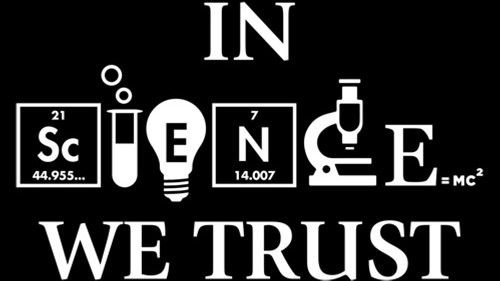



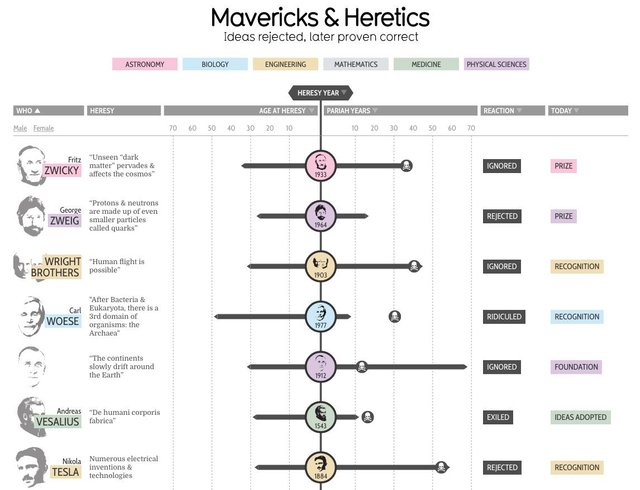
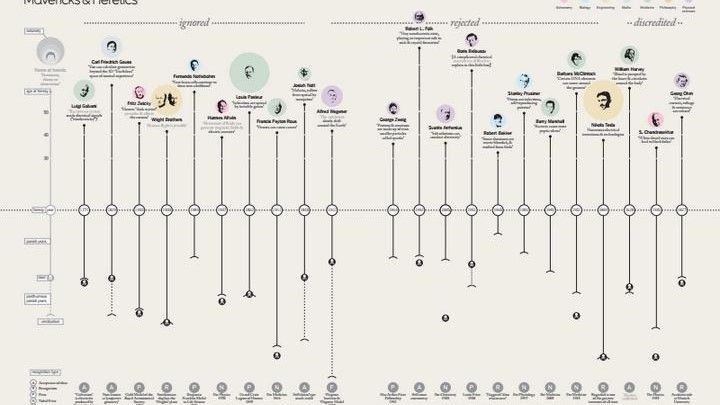
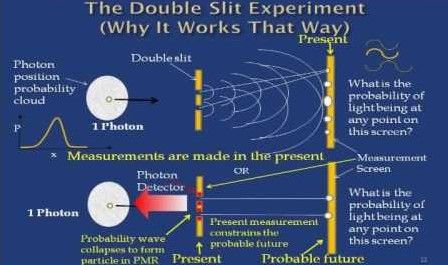
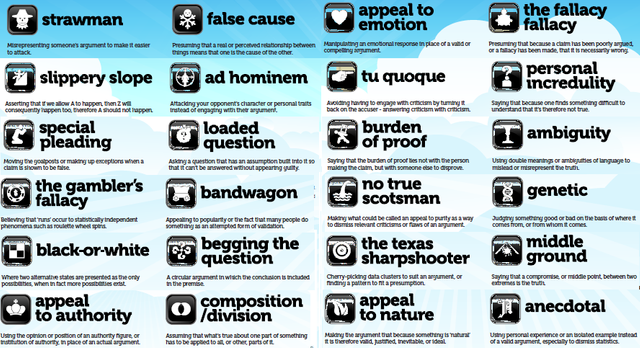
I think the problem you are outlining seems to be more relevant regarding a socio-cultural phenomenon of "scientism" rather than science as a discipline. Any centralized social institution will degenerate into bureaucratic fiefdom given enough time and money, and modern scientific institutions are no exception to this inevitability. I don't think most scientists believe in scientism; Dr. Richard Dawkins is likely to be a rare exception among his circle.
I agree that scientific method is a tool that is useful for specific questions regarding our environment. Scientific method inductive reasoning, but the publication paradigm that necessitates mathematical statistics favors deductive reasoning. I think scientists do fall into the trap of using mathematical deductive reasoning in formulation of hypothetical postulates and confusing it with inductive scientific method. The multiverse hypothesis is one such example; a postulation that can never be tested, thus is non-inductive in reasoning and not scientific. Yet, how many lay folks think multiverse is a "scientific hypothesis"?
I am reminded of an old video game quote, "Will we next build false gods to rule over us? How proud we have become. And how blind." (Sid Meier's Alpha Centauri). I think some in the lay public has indeed replaced old religion for scientism, but I don't think science itself is the problem.
I agree! This is why I made the distinction Science (n) vs science (v). We can look at Science (n) as scientism... I think science (v) is useful in determining some more-accuracies of our natural world. However, it is not the only tool. Some truths are purely subjective. (if not all...)
So, I think the tool (which can be one tool of many) of science (v) is overused, it's conclusions treated too concrete.
Absolutely agree!
"Will we next build false gods to rule over us? How proud we have become. And how blind." (Sid Meier's Alpha Centauri). I think some in the lay public has indeed replaced old religion for scientism, but I don't think science itself is the problem."
Beautiful! I agree science (v) in and of itself is a wonderful tool. It only becomes a religion/belief/problem when it purports to be the sole bearer and method of discerning truth when it becomes Science (n) (scientism).
You might wanna check this out! :
https://steemit.com/science/@lys/so-you-wanted-to-be-a-scientist-let-me-tell-you-what-s-happening-in-academia-today
It supports some of your arguments!
I've linked to your article in my reply there.
@alexander.alexis, here you go. As promised!
Great Article, wish I could resteem things older than 7 days :/
It is a shame ... But I'm glad you liked it. To spread the knowledge is really my primary purpose :)
Me too, here to spread knowledge and experience. But so far, this is one of the biggest flaws I have seen so far with this platform style, and hopefully changes coming out of its beta testing. I have seen lots of good content I want to support, but it is months old and locked out from sharing with my followers. A resteem after 7 days should count as a new post, but you split the rewards with the original poster. Good way to make extra money with viral quality content. hahah I guess the downside would be that someone would figure out a way to exploit that perhaps, so maybe resteem and no earning (but chance for more followers)............. I guess I should write this up better and po$t it , huh? haha
Absolutely!! I like where your head is at and would love a more detailed thought out approach! I'm sure we can implement it. Because it's definitely an issue that really good content gets taken out of circulation after 1 week. Much of the viral content on other social media platforms takes months (sometimes years) to really break out.